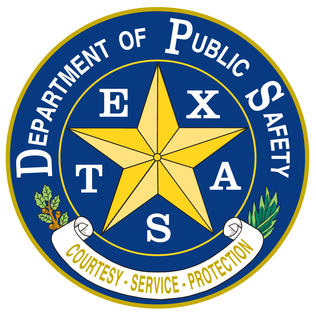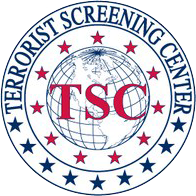Related Research Articles

The Federal Bureau of Investigation (FBI) is the domestic intelligence and security service of the United States and its principal federal law enforcement agency. Operating under the jurisdiction of the United States Department of Justice, the FBI is also a member of the U.S. Intelligence Community and reports to both the Attorney General and the Director of National Intelligence. A leading U.S. counterterrorism, counterintelligence, and criminal investigative organization, the FBI has jurisdiction over violations of more than 200 categories of federal crimes.
A special agent or federal agent is an investigator or detective for a governmental or independent agency, who primarily serves in criminal investigatory positions. Additionally, many federal and state special agents operate in "criminal intelligence" based roles as well. Within the U.S. federal law enforcement system, dozens of federal agencies employ federal law enforcement officers, each with different criteria pertaining to the use of the titles Special Agent and Agent.

The Freedom of Information Act, 5 U.S.C. § 552, is the United States federal freedom of information law that requires the full or partial disclosure of previously unreleased or uncirculated information and documents controlled by the U.S. government, state, or other public authority upon request. The act defines agency records subject to disclosure, outlines mandatory disclosure procedures, and includes nine exemptions that define categories of information not subject to disclosure. The act was intended to make U.S. government agencies' functions more transparent so that the American public could more easily identify problems in government functioning and put pressure on Congress, agency officials, and the president to address them. The FOIA has been changed repeatedly by both the legislative and executive branches.
In the United States, the Joint Terrorism Task Forces (JTTF) are locally-based multi-agency partnerships between various federal, state, and local law enforcement agencies tasked with investigating terrorism and terrorism-related crimes, led by the Federal Bureau of Investigation and U.S. Department of Justice. Although JTTFs were established before the September 11th attacks, these numbers dramatically increased after the attacks.

The Almighty Latin King and Queen Nation is one of the largest Carribean and Latino street and prison gangs worldwide. The gang was founded by Puerto Ricans in Chicago, Illinois in 1954.

The Department of Public Safety of the State of Texas, commonly known as the Texas Department of Public Safety (DPS), is a department of the state government of Texas. The DPS is responsible for statewide law enforcement and driver license administration. The Public Safety Commission oversees the DPS. However, under state law, the Governor of Texas may assume command of the department during a public disaster, riot, insurrection, formation of a dangerous resistance to enforcement of law, or to perform his constitutional duty to enforce law. The commission's five members are appointed by the governor and confirmed by the Texas Senate, to serve without pay for staggered, six-year terms. The commission formulates plans and policies for enforcing criminal, traffic and safety laws, preventing and detecting crime, apprehending law violators, and educating citizens about laws and public safety.

The National Crime Information Center (NCIC) is the United States' central database for tracking crime-related information. The NCIC has been an information sharing tool since 1967. It is maintained by the Criminal Justice Information Services Division (CJIS) of the Federal Bureau of Investigation (FBI) and is interlinked with federal, tribal, state, and local agencies and offices.

The United States National Drug Intelligence Center (NDIC), established in 1993, was a component of the U.S. Department of Justice and a member of the Intelligence Community. The General Counterdrug Intelligence Plan, implemented in February 2000, designated NDIC as the nation's principal center for strategic domestic counterdrug intelligence.

The National Security Branch (NSB) is a service within the Federal Bureau of Investigation. The NSB is responsible for protecting the United States from weapons of mass destruction, acts of terrorism, and foreign intelligence operations and espionage. The NSB accomplishes its mission by investigating national security threats, providing information and analysis to other law enforcement agencies, and developing capabilities to keep the US nation secure.
The Special Intelligence Service was a covert counterintelligence branch of the United States Federal Bureau of Investigation (FBI) located in South America during World War II. It was established to monitor the activities of Nazi and pro-Nazi groups in Central and South America. The organization was a forerunner to the Central Intelligence Agency.

The director of the Federal Bureau of Investigation is the head of the Federal Bureau of Investigation, a United States' federal law enforcement agency, and is responsible for its day-to-day operations. The FBI director is appointed for a single 10-year term by the president of the United States and confirmed by the Senate. The FBI is an agency within the Department of Justice (DOJ), and thus the director reports to the attorney general of the United States.

The Terrorist Screening Center (TSC) is a division of the National Security Branch of the Federal Bureau of Investigation. It is the duty of the TSC to identify suspected or potential terrorists. Though housed within the FBI, the TSC is a multi-agency organization, including representatives from the United States Department of Justice, the United States Department of State, the United States Department of Homeland Security, the United States Department of Defense, the United States Postal Service, and various private contractors. It is located in Vienna, Virginia, near Virginia State Route 123.
The federal government of the United States empowers a wide range of federal law enforcement agencies to maintain law and public order related to matters affecting the country as a whole.

The High-Value Detainee Interrogation Group (HIG) is a U.S. three-agency intelligence-gathering entity that brings together intelligence professionals from the Federal Bureau of Investigation (FBI), the Central Intelligence Agency (CIA), and the United States Department of Defense (DoD). It is administratively housed within the FBI's National Security Branch.
In the United States, the war on gangs is a national movement to reduce gang-related activity, gang violence, and gang drug involvement on the local, state, and federal level. The war on gangs is a multi-lateral approach, as federal agencies seek to disrupt the cycle of violence through intervention with state police and social workers.

The Science and Technology Branch (STB) is service within the Federal Bureau of Investigation that comprises three separate divisions and three program offices. The goal when it was founded in July 2006 was to centralize the leadership and management of the three divisions. The mission of the STB is discover, develop, and deliver innovative science and technology so that intelligence and innovative investigation is enhanced.

The Counterintelligence Division (CD) is a division of the National Security Branch of the Federal Bureau of Investigation. The division protects the United States against foreign intelligence operations and espionage. It accomplishes its mission of hunting spies and preventing espionage through the use of investigation and interaction with local law enforcement and other members of the United States Intelligence Community. In the wake of the September 11, 2001 attacks, the division's funding and manpower have significantly increased.

The Cyber Division (CyD) is a Federal Bureau of Investigation division which heads the national effort to investigate and prosecute internet crimes, including "cyber based terrorism, espionage, computer intrusions, and major cyber fraud." This division of the FBI uses the information it gathers during investigation to inform the public of current trends in cyber crime. It focuses around three main priorities: computer intrusion, identity theft, and cyber fraud. It was created in 2002.

The practice of mass surveillance in the United States dates back to wartime monitoring and censorship of international communications from, to, or which passed through the United States. After the First and Second World Wars, mass surveillance continued throughout the Cold War period, via programs such as the Black Chamber and Project SHAMROCK. The formation and growth of federal law-enforcement and intelligence agencies such as the FBI, CIA, and NSA institutionalized surveillance used to also silence political dissent, as evidenced by COINTELPRO projects which targeted various organizations and individuals. During the Civil Rights Movement era, many individuals put under surveillance orders were first labelled as integrationists, then deemed subversive, and sometimes suspected to be supportive of the communist model of the United States' rival at the time, the Soviet Union. Other targeted individuals and groups included Native American activists, African American and Chicano liberation movement activists, and anti-war protesters.
References
- 1 2 "National Gang Intelligence Center". United States Department of Justice. Archived from the original on 2007-12-24. Retrieved 2008-02-04.
- ↑ "National Gang Intelligence Center". FBI.gov. Federal Bureau of Investigation . Retrieved May 23, 2021.
